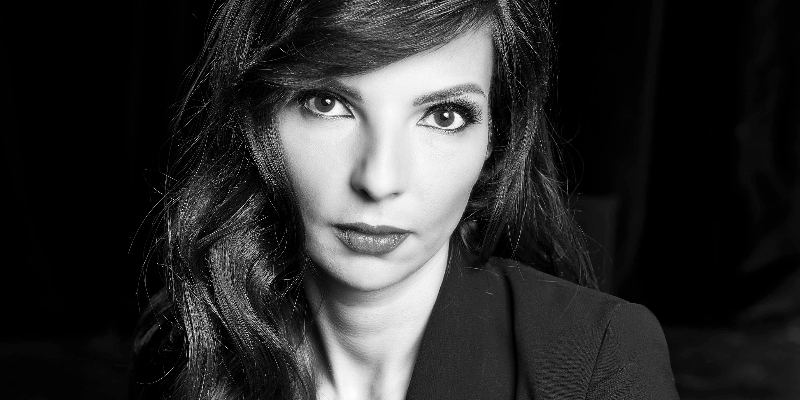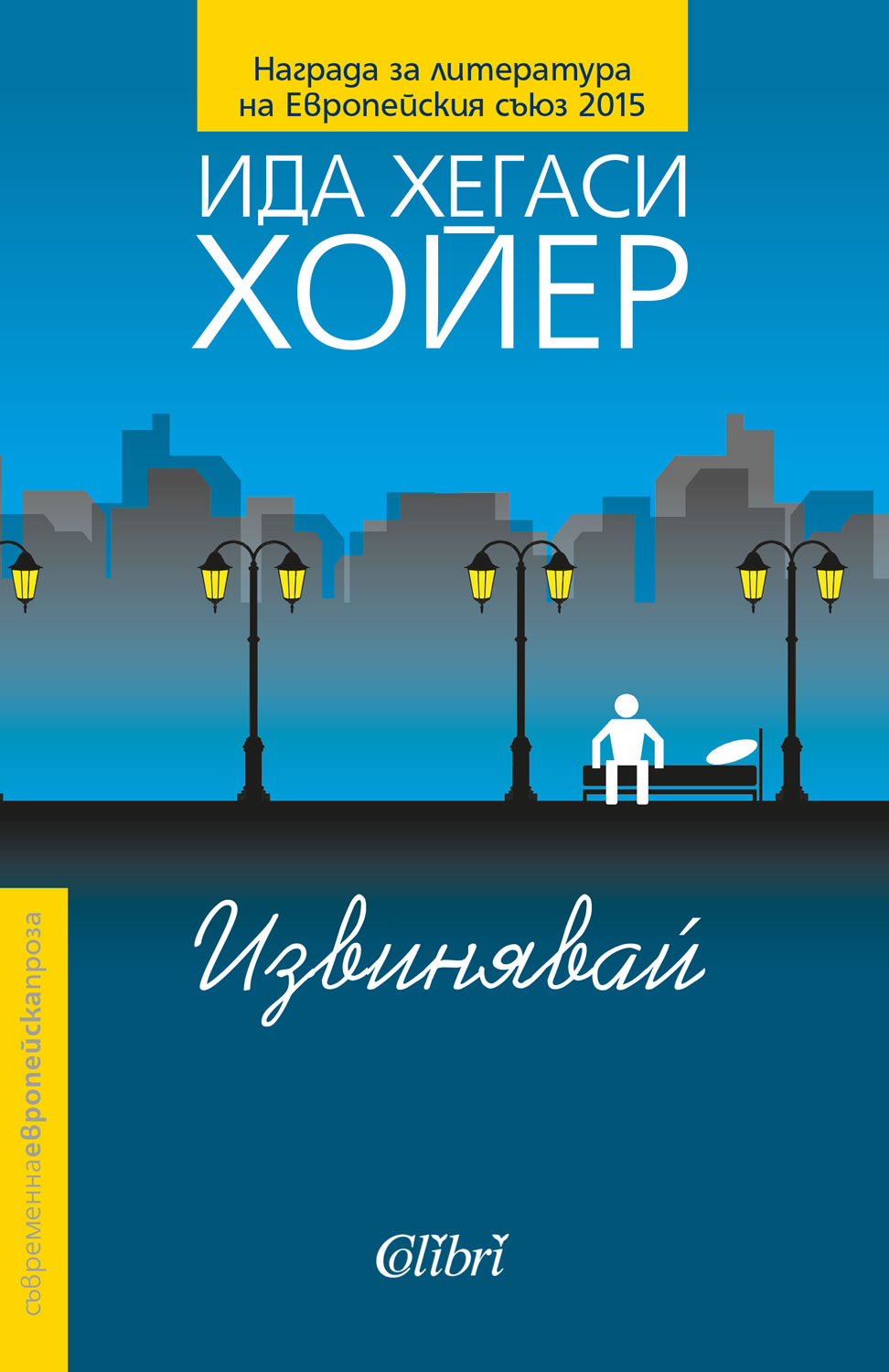ВЪЗМОЖНОСТИ ЗА УЧАСТИЕ В ТРЕНИНГОВИ ПРОГРАМИ И ИНИЦИАТИВИ,…
ANIDOX:LAB 2023 ANIDOX:LAB е персонализиран професионален курс за творци, режисьори, продуценти…
We continue with the series dedicated to Bulgarian publishers actively participating and successful in the rounds of the Programme. Following our first interview with Milen Milev of Paradox Publishing and our second interview with Nevena Dishlieva-Krasteva of ICU, we talk with Jacqueline Wagenstein, General Manager of Colibri Publishing. She shares more about their publishing strategy as well as specific books, part of their latest project co-financed under the Creative Europe programme.

Yes, it is, Colibri is a publishing house with a 30-year tradition and a respectable portfolio of nearly 2,000 titles, featuring some of the most highly regarded names in literature in general, regardless of genre. We offer hardcover and paperback printed books and impeccable artistic design; we have a rich catalogue of electronic titles. We have always been precise in selecting titles, reading and discussing manuscripts carefully, examining the information related to the author concerned in detail before making a decision. Our reputation as a reliable partner has long worked for us, i.e. it eases our efforts to identify and select titles that combine high literary merit, significant issues, market potential. We communicate with prestigious literary agencies and publishing houses from around the world, we rely on our vast experience and flair, we consult with translators, editors and literary experts, we take into account the attitude of local audiences and believe in the need for young artists, or previously unknown artists, with a promising creative vision and a natural talent to find their readers here as well.
The stylistic and genre specificity of the work, the theme, including the balance between current and timeless issues, between universal themes and themes arising from a given context; the interesting or even “idiosyncratic” creative voice. It is also important whether the author has other published works, the reactions they evoke, how his/her new work would fit into our overall publishing strategy, etc.
We built the conceptual framework on the basis of the factors already listed, by endeavouring to cover rare languages and cultures in order to broaden the Bulgarian reader’s perception of the literary profile of the respective peoples and communities. In many cases, authors are of mixed ethnic origin, which brings additional perspectives to the interpretation of the respective works in the light of European values and enriches discussions and meetings with Bulgarian audiences. There is no unambiguousness in genre and stylistic terms, but each of these books meets the requirements for a quality European prose that poses questions and topics essential to modern societies.
Each stage requires responsible decisions – starting from the involvement of highly qualified translators, editors, proofreaders, designers and print finishers, planning of a marketing and PR campaign for the book concerned, official premiere of the Bulgarian edition in the presence of the respective author (who is promptly invited for this purpose), relevant online marketing, organization of pre-orders, distribution to all relevant commercial sites, decisions regarding the presentation of literary forums – book fairs and bazaars, Book Alley, Apollonia Art Festival, etc. in the presence of translators and literary experts, discussion of books within book clubs and other informal groups. Television and external advertising, as well as advertising on social media, are essential, since it contributes hugely to the popularity of the title. Prior to the launch of each book, a positive expectation for it is generated through a series of press releases and coverage in hundreds of online, printed, radio and TV media, publication of interviews with the author, interaction with bloggers, reviews from literary critics, etc. We actively encourage feedback from readers in order to have clarity about the acceptance of the title and about the audience’s impressions as a whole.
“We actively encourage feedback from readers in order to have clarity about the acceptance of the title and about the audience’s impressions as a whole.”
I hold a special bond with each of the 30 books in question. My recent favourites are Fox by Dubravka Ugrešić and Estoril by Dejan Tiago-Stanković. Fox is not a novel, it’s metafiction. A virtuosocombination of autobiographical features, essay, critical review and publicity. A book that captivates the reader with the gushing erudition and originality of the author and the subtle interweaving of real and imaginary. Dubravka Ugrešić contemplates about “how stories are made” and how life writes novels, about the personal existence as a series of footnotes. Estoril also meets fictional characters with real historical figures, and this approach inevitably generates readership interest and helps the otherwise difficult topic of war to be perceived through the prism of individual human destiny. As for human stupidity, the author does not hold back to any nation, mocking equally the British, the Portuguese, his countrymen… Enlightened by insights, references and anecdotes, this brilliantly thought-out novel is a delightful portrait of a controversial historical time in which Europeans from warring countries sat quietly side by side in the casino, bar or restaurant, despite the conflicts that raged outside.


A Hunger is a dazzling stylistic masterpiece, one of the bravest and most surprising novels created in recent years, deservedly awarded the European Union Prize for Literature. We invited author Jamal Ouariachi for the premiere of the Bulgarian edition on November 20, 2019 and he responded with sincere willingness. Ouariachi, by the way, is half Moroccan, a man of cosmopolitan thinking and delicate sensibilities. He has observations on the way humanitarian aid is organised in African countries. He explores in depth the fate of his “character” – the reason for the novel became the true story of Daniel Carleton Gajdušek, an American physician and researcher who received the Nobel Prize in medicine for discovering the origin of Kuru disease in 1976. Gajdušek is also claimed to have been a paedophile, but in Ouariachi’s novel paedophilia turns out to be a smokescreen behind which a whole range of topics emerge gradually – philanthropy, physical and spiritual hunger, parenthood, partnership, cynicism, corrupt ideals, the inability to communicate openly and fully with one another… The author does not hesitate to criticise the hypocrisy of “civilised” societies when necessary.
First of all, Giannis Palavos is one of the most curious and promising young writers in Greece. In addition to writing short stories, he is a comic book and script writer, and also a well-known translator. The Joke is his first collection published in Bulgarian with a wonderful translation from Ivan Genov. The collection shows the influence of writers like Julio Cortázar and Juan Rulfo, living masters of the short stories genre like Etgar Keret. And the short story “For a change” can be seen as an effective reference to Kafka’s world. The collection contains seventeen lapidary stories, skilfully balanced on the boundary between reality and its opposites. Seen from above,the attempts to escape and deal with the harsh realities of these so familiar to us characters feel like bitter affair with the most certain thing in human life: death. Magical realism is mastered and reconstructed by the visionary of the author, by his strictly individual expression and experience in the field of Greek literary tradition.
We always invite the authors, whenever possible. Their visit is important to us because contact with the author of the translation work is indispensable as an emotion. We are able to turn these open audience meetings into memorable experiences, because we pay special attention to both the guest authors and the audience of events. We invite representatives of the embassies of the countries concerned, translators, journalists, academics, students, literators. We hire experienced moderators when a meeting has the potential to grow into an important discussion.
“It is very important to emphasise the visibility of books and modern interactive forms of advertising and publicity.”
The cinema-literature festival complements the strategy in the context of the Creative Europe programme in cases where the work in question is being screened or its author is also taking part in cinematography, script writing, etc. The festival is a powerful factor for further publicity and attracts new audiences for the respective literary work..
Of course, it is most important that they are well versed in the language and have solid experience in the relevant language at a translation level. All selected translators of the project books are winners of prestigious national awards and honours and have an impeccable reputation and recommendations. In addition, they are among the best researchers of the respective peoples and cultures, which further motivates them to engage in the project.
Yes, of course, it is not easy to engage highly qualified translators from Danish, Icelandic or Norwegian, for example. Besides relying on relevant remuneration to attract specialists with relevant expertise, in such cases we rely on the challenging nature of the translation project as motivation for the translator. Mutual correctness and loyalty, proven over the years, also helps us maintain a smooth relationship with our partners and collaborators.
Yes, the graphic appearance of books is not to be taken lightly. It not only makes them recognizable – the cover style often sets the corresponding genre-thematic code and attracts (or repels) certain reader groups. We have designers and illustrators who have an affinity for certain themes and artistic codes, and we need to decide which project to assign to whom. We would change our approach after discussing a creative idea for hours. We are working with various experts in this area, and I have to admit that in the vast majority of cases, I am pleased with the results.
Yes, the interest in the novel A Hunger, for example, which has already been mentioned above, surprised me, because it is a book of over 600 pages in volume after all, and the reading time of today’s fast-tracked and caught-up in the daily life person is rather scarce. (I should note that the novel came out long before the coronavirus spread.) We also have many admirers of Danish writer Peter Høeg, so we offered readers a more genre unusual book of his, The Susan Effect, which is conceived as a thriller but gives impetus to very serious moral dilemmas. I would not say that a certain modern European novel has gone unnoticed. Let’s just say I wish more readers appreciated the poetic novel Sorry by Norwegian writer Ida Hegazi Høyer, say, or Lamija Begagić’s collection of stories Graduation Anniversary. But they, too, reached their readers – a little slower but surely. Thanks to a set of initiatives.


This is exactly what I had in mind when I set an example in the answer to the previous question with two titles that have a more limited readership, but these are readers who are connoisseurs of a clever, inventive, “different” European prose. These are curious, alive, intelligent readers with a broad horizon and an interest in less familiar European cultures. The Creative Europe programme is an extremely important factor in reducing the risk of a title not reaching a very wide readership. The programme’s contribution to the development of Bulgarian book publishing is enormous, especially given the tax obstructions in local legislation, which further complicate the marketing of books.
Above all, there must be clarity about the concept and objectives of the project itself – whether it aims to cover a certain set of topics and ideas or whether it seeks to highlight ‘otherness’ as a value and as a sociocultural issue. These are just two indicative reference points. The reference points and perspectives can be much more. It is very important to emphasise the visibility of books and modern interactive forms of advertising and publicity. Given the ‘marginal’ situation in which we find ourselves, initiatives in this sense will become increasingly important. My third advice is not to ignore the role of all possible mediators who facilitate the book’s journey to its reader – reviewers, opinion leaders, moderators of specialized literary forums, bloggers, artists, journalists who write about culture and art.